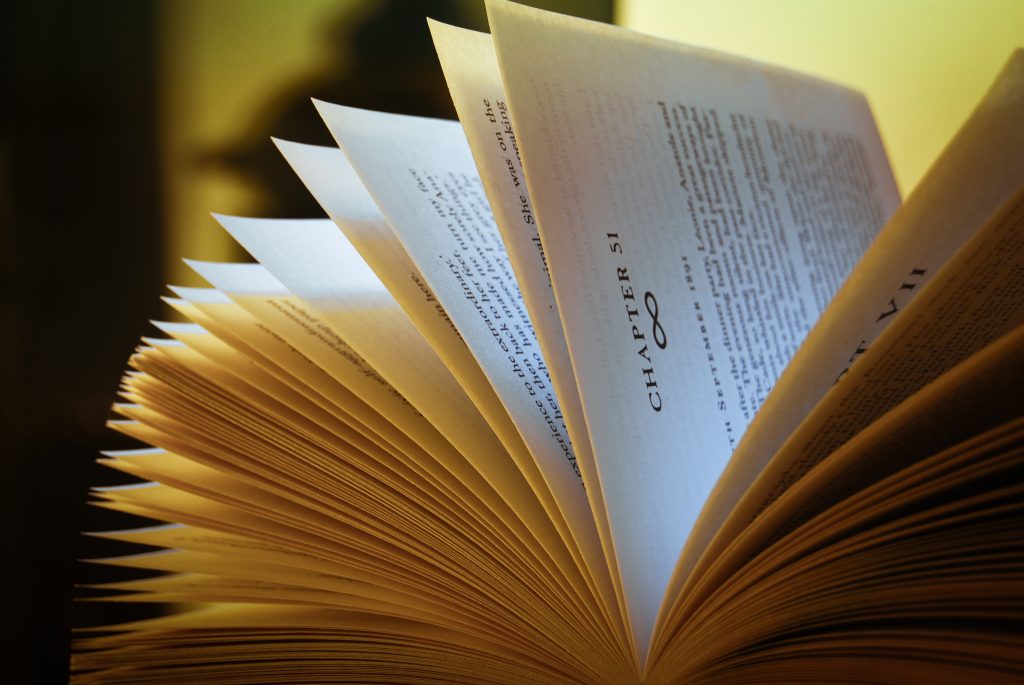2018 was a year of immense change and personal growth, marking my entry into my first year at Durham University sixteen hours away from home, leaving both the school I had attended for seven years and the city I have lived in since birth. During the longest summer holiday I have ever experienced, I managed to embark on a delightful journey, discovering new authors and new books, written by my longstanding admired authors.
Befitting the theme of travelling away from one’s comfort zone, E.M. Forster’s A Room with a View was one of my favourite books. It was a Christmas gift from one of my closest friends, and a gift in many other senses. As I read about the adventures and the hesitance of Lucy, the protagonist, I was able to identify with her views, witnessing how they changed throughout her travels. Initially, Lucy is attached to the Baedeker guidebook that features prominently in the novel, suggesting a desire for information about culture. However, more importantly it conveys instruction regarding how to think and how to feel. However, over the course of her experiences, she turns her focus away from the accumulation of information, acting on and communicating her personal desires, which enables her to form profound physical connections beyond the surface of niceties and small talk.
After reading A Room with a View, I was soon intrigued by Howard’s End, most known for the quotation ‘Only connect!’. As a fan of postcolonial diaspora literature, I am partial towards multigenerational narratives. I thoroughly enjoyed reading about the intersecting, and on occasion colliding worlds of three British families of different classes. The characters’ search for belonging, is symbolised by the unifying central question of inheritance in Howard’s End. I was particularly struck by the cruel irony of the novel’s ending, where one of the characters is killed by a bookcase. This stands in stark contrast to the comforting ending of A Room with a View. Furthermore, the novel’s subtle similarities to the Faust book – notably with the characters Margaret and Helen, who are reimaginations of Gretchen in the original myth caught my attention. In a similar vein, Mikhail Bulgakov’s The Master and Margarita, which I also read in 2018 is also one of my favourite retellings of the Faust myth: Margarita is modelled on Gretchen, while Woland is modelled on Mephistopheles. Bulgakov’s black humour and inventive transitions between settings and narratives compels readers to run alongside the characters and come to their own interpretations.
Zadie Smith’s ‘On Beauty’ is, in her own words, ‘a homage to E.M. Forster.’ I was thrilled by the prospect of reading my two favourite authors in dialogue, arguably in a dialectic – for Smith successfully expands the scope of Howard’s End to encompass modern issues of race and academia, particularly when viewed in the context of unequal power dynamics. One of my favourite aspects of Zadie Smith’s work is her pithy use of epigrams, which feature in On Beauty and more prominently in White Teeth. Akin to an ‘Easter egg’ in films, I view epigrams as a springboard for intertextuality, and a present within a present. I particularly loved the subtle, at times biting, at times warm, humour which Smith’s prose is imbued with – her spot-on description of awkward interactions and her teasing of certain characters. It is precisely Smith’s seamless balance of humour and serious subject matter that increases the complexity of her characterisation, rendering her one of my favourite authors.
While all the changes in my life were taking place in 2018, I found myself gravitating towards the bildungsroman. After studying James Joyce’s A Portrait of the Artist as a Young Man in school, I was captivated by reading about the growth and development of the protagonists as they gained knowledge, from childhood to adolescence and finally to adulthood. Two of the 21st century novels I greatly enjoyed with bildungsroman elements are Elena Ferrante’s My Brilliant Friend and Zadie Smith’s Swing Time. Both novels feature first-person narrators who navigate the experience of being overshadowed by close friend. Elena in My Brilliant Friend aspires to be like the zany, fiercely, independent Lila, while Swing Time’s unnamed narrator loves, envies and occasionally despises her childhood friend, Tracey. While at times I found both narrators unsympathetic, I believe that this contributed to the success of the novels. The floating ambivalence of Smith’s narrator, imposed a firm opinion, enabling us to come to our own conclusions about success and belonging.
My literary journey was characterised by travel, growth, academia, the appreciation of art and beauty. Authors writing with aplomb and humour are my favourite writers. The books that I have read in 2018 have illuminated some go my experiences and will certainly continue to do so now.

